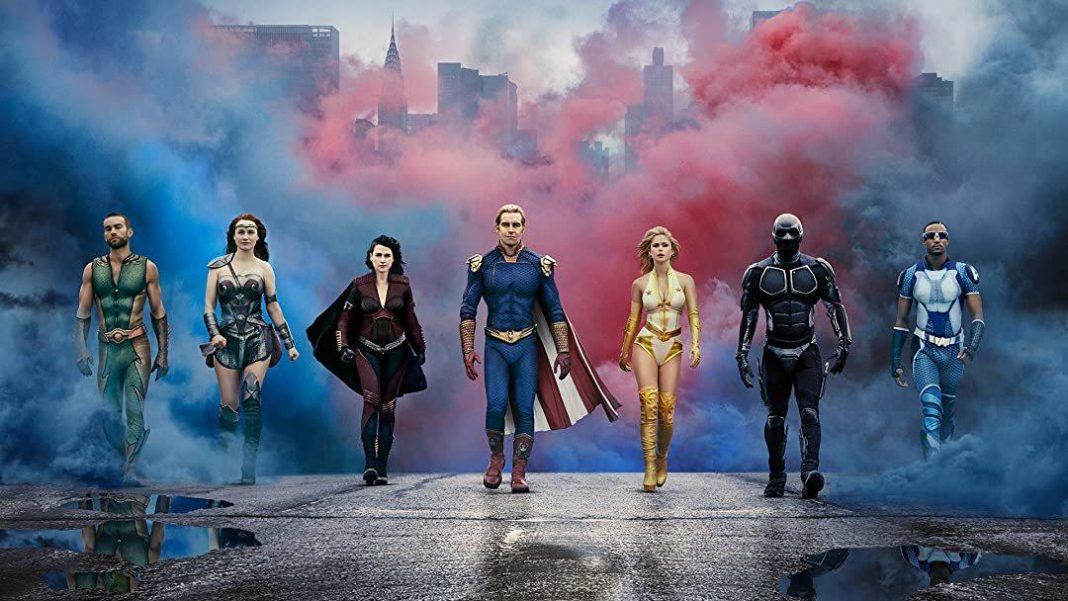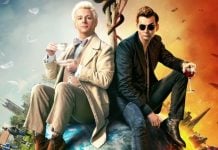It’s safe to say we were big fans of The Boys Season 1 around here. Based on the Dynamite comic by writer Garth Ennis and artist Darick Robertson, this Amazon adaptation from showrunner Erik Kripke dropped to positive reviews and a greenlight for a second season (a third season, by the way, is already underway).
So how does the second season stack up to that success? The Boys Season 2 continues to do what it does best – highlight the narcissistic and capitalist greed surrounding the “branding” of superheroes – while adding a new layer of terror to the world’s least heroic do-gooders. Everything it did well with its anti-heroes, The Seven, in season 1 is dialed up to an even more successful degree in this follow up, though a few members of the titular Boys end up taking a backseat as a result.
(Spoilers for the Boys Season 1 to follow)
The end of The Boys Season 1 helped us to better understand how superheroes work in this world and dropped some surprises to set up Season 2. Specifically: supes are manufactured by Vought Industries using a chemical known as Compound V. When this information, along with the fact that leader of The Seven Homelander (Antony Starr) was using Compound V to create super-villains as a foil for his team, Vought has some serious issues to address in Season 2. Homelander also finds out that he had a son with Billy’s (Karl Urban) incorrectly-presumed dead wife, Becca (Shantel VanSanten), who has been hidden away by Vought this whole time.
In season 1, the mega-corporate approach to superheroes and what terrible people most of them are when the cameras are off was the most unique and successful part of the story. The Boys provided a necessary foil against The Seven and Vought, but their revenge quests were never quite as interesting or felt as relevant to the story as what was happening with The Seven. Incidentally, a criticism leveled against season 1 was the way it handled female characters. Hughie (Jack Quaid) and Billy are both fighting to avenge dead female love interests, and among the group of Boys we have one lone woman – Kimiko (Karen Fukuhara), who, coincidentally doesn’t speak or get up to much. It is clear the showrunners took that criticism to heart and tried to deal with it head on in its approach to season 2, with mixed-to-positive results.
The mixed part? Like in season 1, I still think The Seven and everything happening with Vought is the more interesting part of the show when compared to The Boys. Hughie’s characterization felt more flat this season, Mother’s Milk (Laz Alonso) gets very little to do, Billy is good by virtue of being played by Karl Urban but is fairly one-note, and even Becca’s return didn’t really bring with it the development that I’d hoped for. In fact, most of Becca’s storyline didn’t really work for me. In good news, Kimiko gets more to do this season, and Frenchie (Tomer Kapon) probably gets the richest injection of backstory of the bunch. But by and large, what they’re doing doesn’t really click into place until towards the back half of the season.
The successful part? Season 2 introduces a new member of The Seven named Stormfront (Aya Cash), a social-media savvy supe who pokes fun at the stiff and overly-produced nature of her colleagues and infuriates Homelander with the way she so easily pulls the spotlight away from him. Much of season 2 is a fascinating and competitive, antagonistic tug of war between Homelander and Stormfront, who were easily my favorite parts of the show. Queen Maeve (Dominique McElligott) also plays an interesting role in this back and forth between the two, struggling against her fear of Homelander and her desire to live her life without that fear.
Some additional observations:
- Season 2 introduces us to the Church of the Collective, a very clear Scientology stand-in obsessed with Fresca. The Church operates as an almost third unit outside of Vought and The Boys, where we find The Deep (Chace Crawford) working with The Church to rehabilitate his public image.
- Hughie and Starlight (Erin Moriarty) functioned as nice bridge characters and audience stand-ins during Season 1, when they joined The Boys and The Seven as newcomers and learned the ropes as we did. Now that neither group needs an introduction, it felt like there was a less clear vision for either of them this time around.
- Giancarlo Esposito joins the cast this season (after a blink-and-you’ll-miss-it Season 1 appearance) as a high level operative at Vought, essentially taking the place of Elisabeth Shue. I adore Esposito in basically everything he’s in, and this role is no exception.
- It was true in season 1 and it remains true here – as the image-obsessed psychopathic Homelander, Starr remains the show’s MVP, though Cash’s Stormfront gives him a run for his money. Starr manages to bring a Patrick Bateman in American Psycho persona grafted onto a character like Captain America, with a few rare flickers of humanity, and the result is increasingly thrilling and terrifying.
- On the heels of DC’s Fandome, be on the lookout for a Joss Whedon jab!
- We get a pretty obvious attempt at a big “girl power” moment in Season 2, but I’d say it’s handled more gracefully than it was in Endgame.
The Boys Season 2 is available streaming on Amazon starting Sept. 4.








